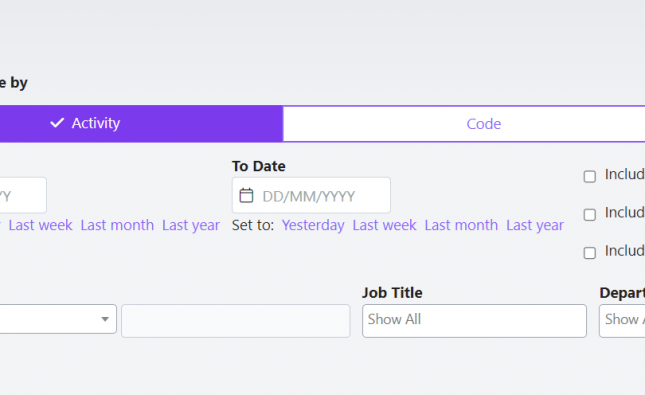A CIPD report released this month highlights the need for improved recruitment techniques in order to create diverse workplaces.
The report, “A head for hiring: The behavioural science of recruitment and selection,” suggests that there is a long way to go when it comes to recruiting the best candidates for roles, including “biases and judgment errors that may occur on the assessor’s side.”
Failing to choose the best candidate for a job, for whatever reason, unnecessarily limits the potential productivity of the role. Equally serious, rejected candidates may have a case for discrimination if the reason for them not being selected is found to have been unrelated to skills.
Our Performance Management Suite contains eLearning courses which help managers achieve the best possible results while complying with relevant employment law, and includes a Manager’s Guide to Interviewing Skills.
Taken from that course, here are some dos and don’ts of interviewing, which can help to ensure the best candidates are hired for your business:
Do
- Review anonymised CV’s alongside the job description to identify relevant skills and experience, as well as highlight possible gaps which could be areas for questioning.
- Agree roles with anyone else involved in the interview, including deciding who will ask which questions and who will take notes.
- Greet the candidate, introduce yourself and anyone else involved, and offer the candidate a drink. This is your first opportunity to build a rapport with the candidate to put them at ease.
- Signpost what will happen during the interview, providing timings.
- Ask a variety of questions including biographical questions which explore the candidate’s career history and experience, and situational questions which explore the behaviours and skills they’ve utilised in managing different situations.
- Ask open and probing questions which will enable you to identify whether the candidate is right for the role, asking clarifying questions to clear up any ambiguity.
- Listen actively while the candidate is talking.
- Answer any questions the candidate has about the role in as much detail as possible – this is a chance for both of you to identify if the role would be a good fit.
- Record both quantitative and qualitative data during the interview which can be used to make a decision later on based on the candidate’s suitability for the role.
Don’t
- Ask candidates about their age, or make any related questions such as enquiring about the year they finished school.
- Ask candidates whether they have children or are planning to have children in the future, or about their marital / civil partnership status.
- Ask closed questions which don’t invite further elaboration, such as “Do you agree?”
- Ask questions which aren’t relevant to the skills and experience necessary for the role.
- Tell the candidate how you personally would face a similar situation to the ones discussed – the interview is about the candidate.
- Forget to sell the organisation to the candidate – if you make an offer, they still need to accept it.
- Discriminate against a candidate on the grounds of their race, sex, age, disability, sexual orientation, religion or belief, marriage or civil partnership, gender reassignment.
- Take your mobile phone, computer or any other form of distraction into interviews – ensure the candidate has your full attention.
- Forget to explain the next steps at the close of the interview, including when the candidate can expect to hear back from you.


